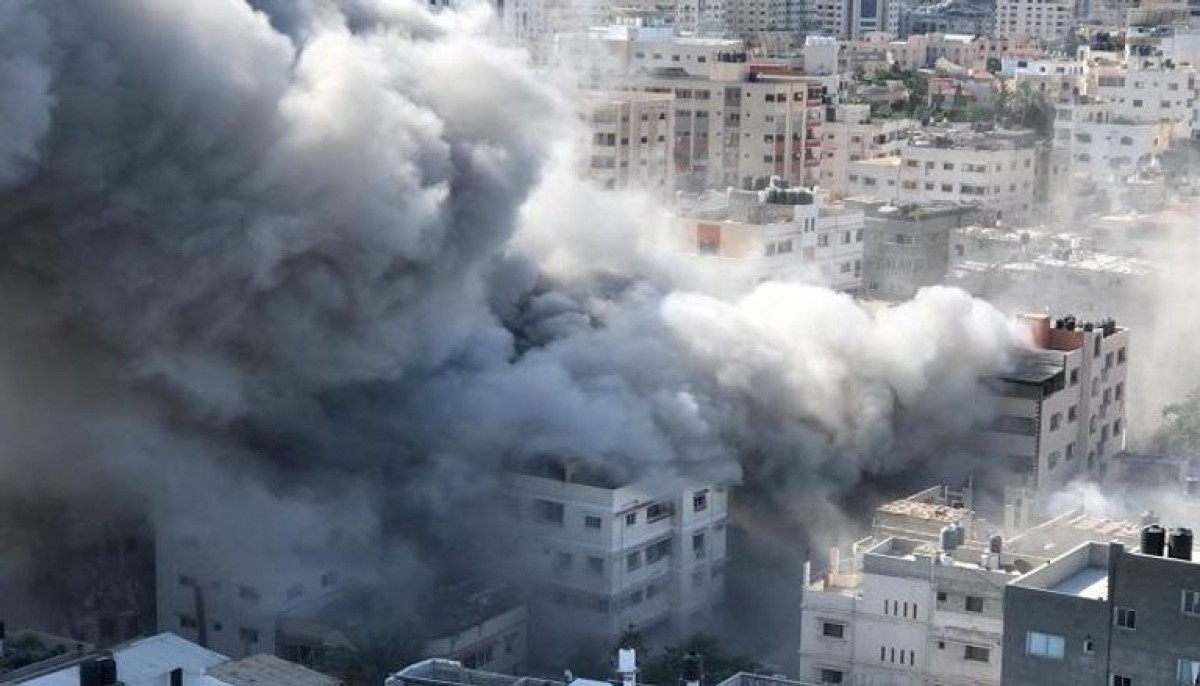The war is on its 13th day.. Gaza is gathering its pieces and waiting for its artery to be opened


There is no sound in Gaza louder than the groan of death in a strip that seemed like a mobile cemetery for the postponed dead who had by chance survived an unrelenting bombardment.
In the courtyard of Al-Ahly Baptist Hospital, Palestinians are still searching for body parts scattered by a bombing that hit the place the day before Tuesday, leaving nearly 500 dead and dozens wounded.
As for the south of the Gaza Strip, UNRWA schools were filled with displaced people, and those fleeing the fires of war in Gaza City and its north spread out on the ground in front of buildings and in the streets in the cities of Khan Yunis and Rafah. According to what was monitored by Al Ain News.
In the city of Khan Yunis, the corridors and courtyards of Nasser Hospital were transformed into a shelter where those fleeing sought shelter, food and drink.
Rafah crossing...the closed artery
Between a fiery north and a groaning south in a besieged strip, eyes move to the Rafah border crossing, between Gaza and Egypt, which has become a lifeline for the Palestinians in Gaza in light of the closure of all other crossings with Israel, with the announcement of the start of the passage of humanitarian aid, by Tomorrow, Friday.
Yesterday, Wednesday, US President Joe Biden and Egyptian President Abdel Fattah El-Sisi announced that the humanitarian aid that the Palestinians in Gaza are waiting for will begin passing through the Rafah crossing from Egypt, which neighbors the Strip.
An announcement came after a visit by Biden to Israel, during which he renewed the United States’ support for its ally, and exonerated it from the bombing that targeted “Al-Maamdani” Hospital.
According to what Biden said on board his plane that was returning from Israel to the United States, it was agreed to allow “the passage of up to 20 trucks” of aid to the sector on which Israel has imposed an effective blockade since the beginning of the war that broke out following an attack launched by Hamas movement on towns around the Gaza Strip.
For days, dozens of trucks loaded with international aid have been lining up on the Egyptian side, waiting to enter Gaza.
Martin Griffiths, the United Nations Emergency Relief Coordinator, said that the Gaza Strip needs a huge amount of humanitarian aid, amounting to 100 trucks a day, stressing the need to ensure its security.
Gaza's 2.3 million people need water and food. They are also deprived of electricity under the siege imposed by Israel.
Israel stipulates
Meanwhile, Israeli Prime Minister Benjamin Netanyahu's office said that Tel Aviv "will not prevent humanitarian aid from Egypt as long as it includes food, water and medicine for the civilian population in the southern Gaza Strip."
However, Israel set a condition for this, which is that this aid “will not pass through its territory before the hostages held by Hamas are released.”
Hamas says that the “Al-Aqsa Flood” attack resulted in the capture of 200-250 Israelis, and explained that it has 200, while the rest are held by other factions.
While Israel talks about at least 199.
During his visit to Israel, the US President stressed that their release is an “absolute priority.”
Security Council veto
On Wednesday, for the second time in a week, Washington used its veto power against a UN Security Council resolution calling for a “humanitarian truce.”
Washington criticized the text because it did not mention “Israel’s right to defend itself.”